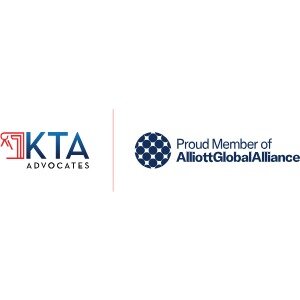Best Project Finance Lawyers in Uganda
Share your needs with us, get contacted by law firms.
Free. Takes 2 min.
Or refine your search by selecting a city:
List of the best lawyers in Uganda
About Project Finance Law in Uganda
Project finance is a method of funding large infrastructure and industrial projects, such as power plants, roads, oil & gas developments, and telecommunications networks. In Uganda, project finance typically involves the establishment of a separate legal entity known as a special purpose vehicle (SPV) that will raise debt and equity to fund the project. The repayment of the financing is mainly through the project's cash flows, rather than from the general assets or creditworthiness of project sponsors. As Uganda continues to develop its infrastructure and attract foreign investment, understanding project finance law has become crucial for businesses, investors, and stakeholders involved in these projects.
Why You May Need a Lawyer
Project finance transactions in Uganda are complex and can involve significant legal, regulatory, and technical considerations. You may need a lawyer for the following situations:
- Negotiating terms of financing agreements with lenders, investors, and government authorities
- Structuring the SPV and determining the appropriate corporate structure
- Ensuring compliance with regulatory requirements such as licensing, environmental permits, and land acquisition
- Drafting and reviewing contracts such as concession agreements, power purchase agreements, and construction contracts
- Addressing issues related to cross-border funding and currency risks
- Navigating tax incentives or exemption schemes relevant to the project sector
- Advising on risk allocation among project parties
- Dispute resolution during project implementation or operation
A skilled project finance lawyer can help you avoid costly mistakes by ensuring your interests are protected and the project is legally sound from the planning stages up to completion.
Local Laws Overview
Uganda’s legal framework for project finance draws from a mixture of statutes, regulations, and common law principles. Key legal issues to consider include:
- Company Law: The Companies Act, 2012 provides the basis for forming SPVs and other business structures common in project finance.
- Land Law: The Land Act and related legislation govern acquisition, tenure, and the use of land for projects. Due diligence is essential for land rights and acquiring land for infrastructure.
- Regulatory Approvals: Many projects, especially in sectors like energy or mining, require sector-specific licenses and permits administered by agencies such as the Electricity Regulatory Authority and the Ministry of Energy and Mineral Development.
- Environmental Law: The National Environment Act and regulations mandate obtaining environmental impact assessments and permits before commencing projects with significant environmental impacts.
- Security Interests: Financing parties may require security over project assets. The Uganda Registration Services Bureau manages the registration of security interests, including charges and debentures.
- Public Private Partnerships (PPP): The Public Private Partnership Act, 2015 sets out the framework for PPPs, including approval procedures, risk allocation, and standard forms of agreement.
- Tax Laws: Understanding available tax incentives and obligations is critical. The Uganda Revenue Authority provides guidance, and certain sectors enjoy tax waivers under investment promotion laws.
Careful legal analysis is required to comply with all regulatory requirements and to structure the financing effectively under Ugandan law.
Frequently Asked Questions
What is project finance?
Project finance is a funding method that relies on the project's own cash flows to repay loans and equity, not the sponsors’ general assets. It typically involves complex contractual structures and separates project risks from those of the sponsors.
Do I need a special type of company to undertake a project finance transaction in Uganda?
Most project finance deals use a specially created entity called a Special Purpose Vehicle (SPV), which serves as the legal entity for managing the project and its liabilities.
Which government bodies must approve my project?
Approvals may be required from the Uganda Investment Authority, sector regulators such as the Electricity Regulatory Authority, the National Environmental Management Authority, and other ministries depending on the nature and location of the project.
How do I secure land for my project?
Land acquisition is governed by the Land Act. This process may involve negotiations with private owners, local authorities, or communities and often requires verification of titles and due diligence to secure clear rights.
What environmental approvals are needed?
Projects likely to have significant environmental impacts must obtain an Environmental Impact Assessment (EIA) certificate from the National Environmental Management Authority before commencement.
Are there any incentives for project finance investors in Uganda?
Yes, Uganda offers tax holidays, exemptions, and other incentives for particular sectors and investments registered with the Uganda Investment Authority or under specific investment promotion laws.
Can I raise financing from foreign lenders?
Foreign financing is allowed, but such arrangements may require registration with the Bank of Uganda or notifications to other regulatory bodies. Currency risk and repatriation of profits should also be considered.
How are disputes in project finance agreements resolved?
Dispute resolution mechanisms, such as arbitration or litigation in Ugandan courts, are usually set out in the contracts themselves. Uganda recognizes international arbitration as an option if agreed by the parties.
What are public-private partnerships (PPP), and are they allowed in Uganda?
PPPs are arrangements where a private entity partners with a government agency to finance, build, and operate a project. Uganda has a legal framework for PPPs under the Public Private Partnership Act, 2015, which supports infrastructure development.
Why should I consult a lawyer before starting a project finance transaction?
Project finance transactions have many legal, regulatory, and commercial risks. Consulting a lawyer ensures that you structure the deal correctly, comply with the law, manage risks, and avoid disputes later.
Additional Resources
- Uganda Investment Authority (UIA) - Offers project registration and investment guidance
- Uganda Registration Services Bureau (URSB) - Manages company incorporation and asset security registration
- National Environmental Management Authority (NEMA) - Oversees environmental approvals and EIAs
- Electricity Regulatory Authority (ERA) - Regulates energy sector projects
- Ministry of Finance, Planning and Economic Development - Administers PPPs and provides guidance on public financing
- Uganda Law Society - Referral service for licensed legal professionals in Uganda
Next Steps
If you are considering undertaking or investing in a project that could benefit from project finance, start by defining the scope and sector of your project. Consult with relevant regulatory authorities to understand sector-specific requirements and licensing procedures. It is highly recommended to seek the assistance of a qualified lawyer with expertise in project finance and Ugandan law as early as possible. The lawyer can help you navigate the application processes, draft and review contracts, structure the financing, and represent you in negotiations. Keep records of all communications, due diligence findings, and approvals for future reference. Finally, stay informed on legal and regulatory updates that may affect your project.
Lawzana helps you find the best lawyers and law firms in Uganda through a curated and pre-screened list of qualified legal professionals. Our platform offers rankings and detailed profiles of attorneys and law firms, allowing you to compare based on practice areas, including Project Finance, experience, and client feedback.
Each profile includes a description of the firm's areas of practice, client reviews, team members and partners, year of establishment, spoken languages, office locations, contact information, social media presence, and any published articles or resources. Most firms on our platform speak English and are experienced in both local and international legal matters.
Get a quote from top-rated law firms in Uganda — quickly, securely, and without unnecessary hassle.
Disclaimer:
The information provided on this page is for general informational purposes only and does not constitute legal advice. While we strive to ensure the accuracy and relevance of the content, legal information may change over time, and interpretations of the law can vary. You should always consult with a qualified legal professional for advice specific to your situation.
We disclaim all liability for actions taken or not taken based on the content of this page. If you believe any information is incorrect or outdated, please contact us, and we will review and update it where appropriate.
Browse project finance law firms by city in Uganda
Refine your search by selecting a city.
















